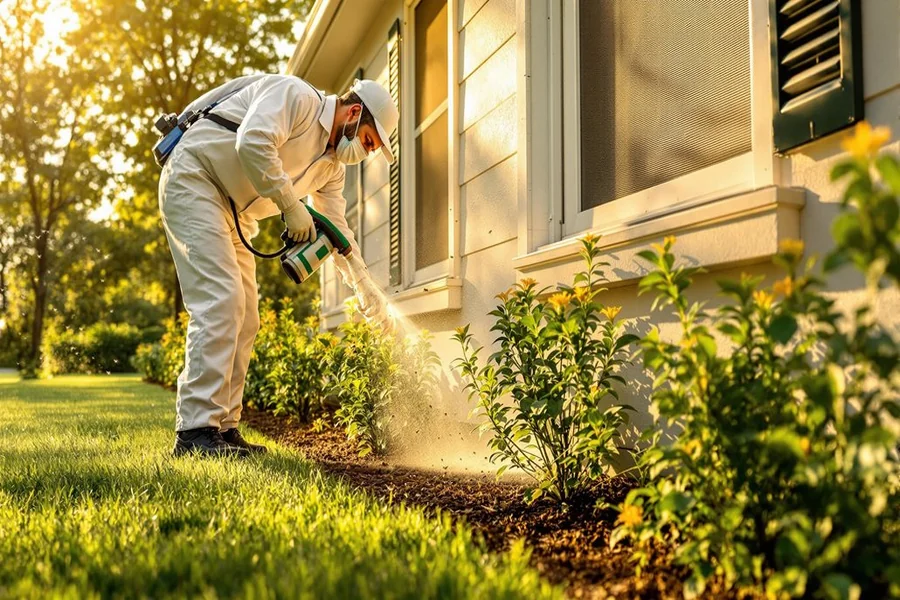Key Takeaways
- Knowledge of pest life cycles is foundational to effective and environmentally responsible pest management.
- Seasonal adjustments—like spring cleanups or winter-proofing—are vital for optimal results.
- Emphasizing natural and eco-friendly interventions benefits both people and the planet.
Pest management is crucial for maintaining a safe and comfortable environment. Homeowners and businesses can implement targeted prevention measures to minimize infestations and damage by understanding seasonal behaviors and environmental factors. Season-specific approaches protect property and health, reduce reliance on reactive treatments, and promote long-term sustainability. By adopting seasonal strategies, pest management efforts are timely, efficient, and tailored to local conditions, ensuring a safer environment year-round.
Pest management is most effective when it shifts with the seasons, accounting for different pest activities and life cycles throughout the year. Adopting a seasonally tailored approach rather than relying on a single method or reacting only after pests appear keeps homes and gardens safer and healthier. For those who need extra support or face persistent infestations, consulting a professional exterminator in Boston can provide localized, expert help tailored to the challenges associated with specific pests in your area.
From early detection in spring to fortifying your home against winter invaders, these strategies reduce reliance on harsh chemicals and support sustainable pest control. Understanding pest cycles and acting proactively—rather than reactively—empowers homeowners and gardeners to maintain cleaner, safer living spaces.
Spring: Preventing Pest Emergence
Rising temperatures are causing dormant pests to return, requiring swift intervention. In spring, physical inspections and simple prevention tactics are crucial. Early detection methods include frequent plant inspections for signs of feeding, eggs, or damage, placing sticky traps near doors and windows, and checking for standing water. Natural deterrents include growing aromatic herbs like basil, mint, and rosemary, releasing beneficial insects like ladybugs, and sprinkling diatomaceous earth at plant bases to deter crawling insects.
Summer: Combating Heat-Loving Pests
Hot weather can increase pest populations, necessitating vigilant home gardeners and residents to address these issues. To prevent mosquito breeding, remove standing water from plant saucers, inspect and repair outdoor faucets and irrigation leaks, and opt for drip irrigation. Install mesh screens on windows and doors to block insect entry, check foundation cracks and gaps, and protect tender vegetable crops with row covers. Additionally, there is an increased risk of pest-borne illnesses during the summer. These measures help maintain a healthy environment and reduce the risk of pest-borne diseases.
Fall: Preparing for Cooler Weather
As temperatures drop and days shorten, pests seek warm indoor shelter. To prevent wintertime infestations, inspect your home’s foundation, doors, and windows, seal gaps with caulk or expandable foam, repair or replace screens, and add door sweeps. Pay attention to entry points like cables or pipes. Clean up yard debris, store firewood 20 feet away from the foundation, and prune back branches and shrubs to reduce easy access for pests. Regularly check attic and basement areas for signs of pest activity, as these spaces are common winter hideouts. Maintaining a clean interior, especially in kitchens and storage areas, further discourages pests from settling in. Early preparation and vigilance can save homeowners from costly infestations during the colder months.
Winter: Indoor Pest Prevention
Colder weather attracts pests to indoor spaces, requiring indoor strategies to prevent infestations. Essentials include maintaining indoor humidity between 30 and 50 percent, using dehumidifiers in problematic areas, and promptly addressing leaks. Food should be stored in airtight containers, and pantry shelves should be cleaned thoroughly. Regular rotation and inspection of stored food can help prevent pests from accessing older, forgotten items. Sealing cracks and gaps around windows, doors, and foundations also helps block entry points for rodents and insects. Additionally, keeping clutter to a minimum reduces hiding places for pests inside the home. Consistent cleaning and maintenance are key to creating an uninviting environment to unwelcome guests.
Year-Round: Integrated Pest Management (IPM)
Integrated Pest Management (IPM) is a holistic approach combining preventive, biological, and control methods to minimize pests and environmental impact. It involves introducing beneficial insects, applying nematodes to the soil, and encouraging wildlife to attract natural predators. When using chemicals, it is crucial to select targeted pesticides that target only the problem species and avoid broad-spectrum chemicals that harm beneficial insects. When pollinators and natural predators are less active, treatments should be applied early or late in the evening. Rotating between different chemical classes can prevent pest resistance over time. Adopting IPM strategies is crucial for maintaining a healthy ecosystem and protecting homes and the environment.

